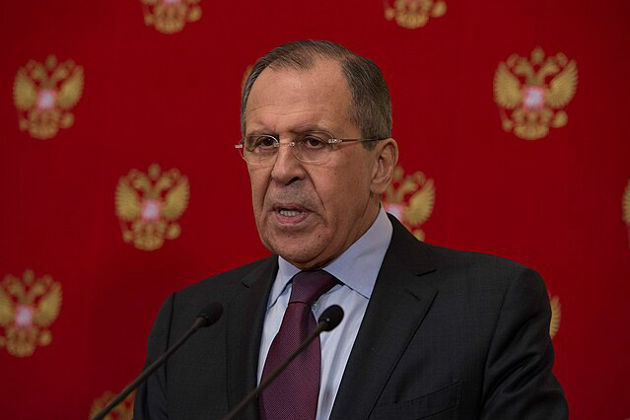Vital signs: we need those tax cuts now, all of them. The surplus can wait
The Conversation
12 Jul 2019, 01:49 GMT+10

In an enormous week for economic news at the start of the month, parliament passed the government's three-stage personal income tax plan, and the Reserve Bank cut official interest rates to an unprecedented low of 1%.
It happened against the backdrop of a flagging economy in dire need of stimulus.
As the bank cut rates to a record low, its governor Philip Lowe again warned about the waning power of rates (monetary policy) to lift the economy.
At the Darwin community dinner after the board meeting he said:
Lowe and many others - including yours truly - have repeatedly pointed out that spending on physical and social infrastructure can do what lower rates can't do well - boost the economy while lifting its productivity. So, too would other productivity-enhancing reforms, particularly in the labour market.
And, of course, the government's tax cuts will also stimulate the economy when they come into effect.
With tax cuts, timing's the thing...
The obvious problem is that much of stimulus from those tax cuts will happen years from now, rather than today.
What the government should have done was insist on enacting all three stages of their tax plan immediately. Not staggered over several years, not in 2024-25. Now.
That would have, of course, pushed the budget into deficit in the short run, and that would would have run counter to the government's narrative about being responsible economic managers.
But how responsible is it to prioritise one's own political brand over the economic health of the nation?
Read more: Ultra-low unemployment is in our grasp. How Philip Lowe became the governor who lifted our ambition
Let's not forget where the timing of the government's tax plan came from. 2024-25 is outside the budget's so-called "forward estimate" period and thus the impact on the deficit or surplus projections is not apparent.
It was the same rationale that underpinned the glacial, decade-long pace at which the government's "enterprise tax plan" was to move to a 25% company tax rate. And it is the same set of dodgy accounting tricks that Wayne Swan was a master of for everything from health to education spending commitments.
...and the timing could be immediate
Productive infrastructure spending is hard to enact quickly. Spending on social infrastructure like education and training has a long lead time.
And structural reform of the industrial relations system might is probably the hardest and longest of all to put in place.
They are real constraints.
The Reserve Bank faces another, the so-called "zero lower bound" of conventional monetary policy and the complexities and uncertainties of unconventional policies such as quantitative easing.
Read more: Below zero is 'reverse'. How the Reserve Bank would make quantitative easing work
But a government which won a mandate for its tax policies, and who frankly has the Labor opposition in a tailspin, could have insisted on all three stages of the tax cuts immediately.
The only thing standing between the economy and the aggressive fiscal stimulus it needs is the government's obsession with balancing the budget regardless of the circumstances.
We're not in the best of times
Don't get me wrong, I think debt and deficits most certainly do matter. The government deserves credit for chipping away at the structural budget deficit, and we shouldn't be running deficits in good economic times.
But we're not in good economic times. We're standing on the precipice of the first recession in nearly three decades. We're looking at highly uncertain global conditions, domestic economic growth that has slowed to a trickle, sluggish wages growth, persistently high underemployment, and even the possibility of Japanese-style deflation.
The irony is that if, with the failure to enact sufficiently bold stimulus, we do tip into a recession, the red ink will flow all through the budget. Unemployment benefits and welfare payments will rise, personal and corporate income receipts will fall, GST revenue will drop. And young people who enter the labour market during a recession will suffer for years to come.
The downsides of not enacting sufficient fiscal stimulus far outweigh whatever benefits there are of a glide to path to budget balance while avoiding a recession.
It's certainly not the time for hand-wringing
Coming back to Lowe's admonition that we need the "various arms of public policy...pointing in the same direction", here's where we currently stand: The bank has acted, but far too late. For years it told us that 5% unemployment was as good as it could get long-term, to be patient and to wait for higher wage growth and inflation.
It's been a mere five weeks since Lowe stopped impersonating Charles Dickens' character Wilkins Micawber, who was fond of saying "something will turn up".
Read more: Buckle up. 2019-20 survey finds the economy weak and heading down, and that's ahead of surprises
Now the treasurer Josh Frydenberg is giving us his version of the same routine. On one hand he says personal income tax cuts are crucial to boosting employment and spending. On the other hand, he says we'd better wait.
The Australian economy can't afford to wait for aggressive stimulus. The government has shown more concern for its political brand than for our economic health.
It isn't what a responsible steward would do.
Author: Richard Holden - Professor of Economics, UNSW 
 Share
Share
 Tweet
Tweet
 Share
Share
 Flip
Flip
 Email
Email
Watch latest videos
Subscribe and Follow
Get a daily dose of Sacramento Sun news through our daily email, its complimentary and keeps you fully up to date with world and business news as well.
News RELEASES
Publish news of your business, community or sports group, personnel appointments, major event and more by submitting a news release to Sacramento Sun.
More InformationBusiness
SectionUS debt limit raised, but spending bill fuels fiscal concerns
NEW YORK CITY, New York: With just weeks to spare before a potential government default, U.S. lawmakers passed a sweeping tax and spending...
Shein hit with 40 million euro fine in France over deceptive discounts
PARIS, France: Fast-fashion giant Shein has been fined 40 million euros by France's antitrust authority over deceptive discount practices...
Meta hires SSI CEO Gross as AI race intensifies among tech giants
PALO ALTO/TEL AVIV: The battle for top AI talent has claimed another high-profile casualty—this time at Safe Superintelligence (SSI),...
Engine defect prompts Nissan to recall over 443,000 vehicles
FRANKLIN, Tennessee: Hundreds of thousands of Nissan and Infiniti vehicles are being recalled across the United States due to a potential...
Microsoft trims jobs to manage soaring AI infrastructure costs
REDMOND, Washington: Microsoft is the latest tech giant to announce significant job cuts, as the financial strain of building next-generation...
Stocks worldwide struggle to make ground Friday with Wall Street closed
LONDON UK - U.S. stock markets were closed on Friday for Independence Day. Global Forex Markets Wrap Up Friday with Greeback Comeback...
International
SectionMoscow removes Taliban from banned list, grants official status
MOSCOW, Russia: This week, Russia became the first country to officially recognize the Taliban as the government of Afghanistan since...
Netanyahu vows 'No Hamas' in postwar Gaza amid peace talks
CAIRO, Egypt: This week, both Hamas and Israel shared their views ahead of expected peace talks about a new U.S.-backed ceasefire plan....
US sends message by publicizing visa ban on UK punk-rap band
WASHINGTON, D.C.: The Trump administration has made public a visa decision that would usually be kept private. It did this to send...
Tragedy in Spain: Diogo Jota and his brother die in car accident
MADRID, Spain: Liverpool footballer Diogo Jota and his younger brother, André Silva, have died in a car accident in Spain. Spanish...
Early heatwave grips Europe, leaving 8 dead and nations on alert
LONDON, U.K.: An unrelenting heatwave sweeping across Europe has pushed early summer temperatures to historic highs, triggering deadly...
U.S. military, China, Russia in Space race
President Donald Trump's plans to build a space-based Golden Dome missile defense shield have drawn immediate criticism from China,...













